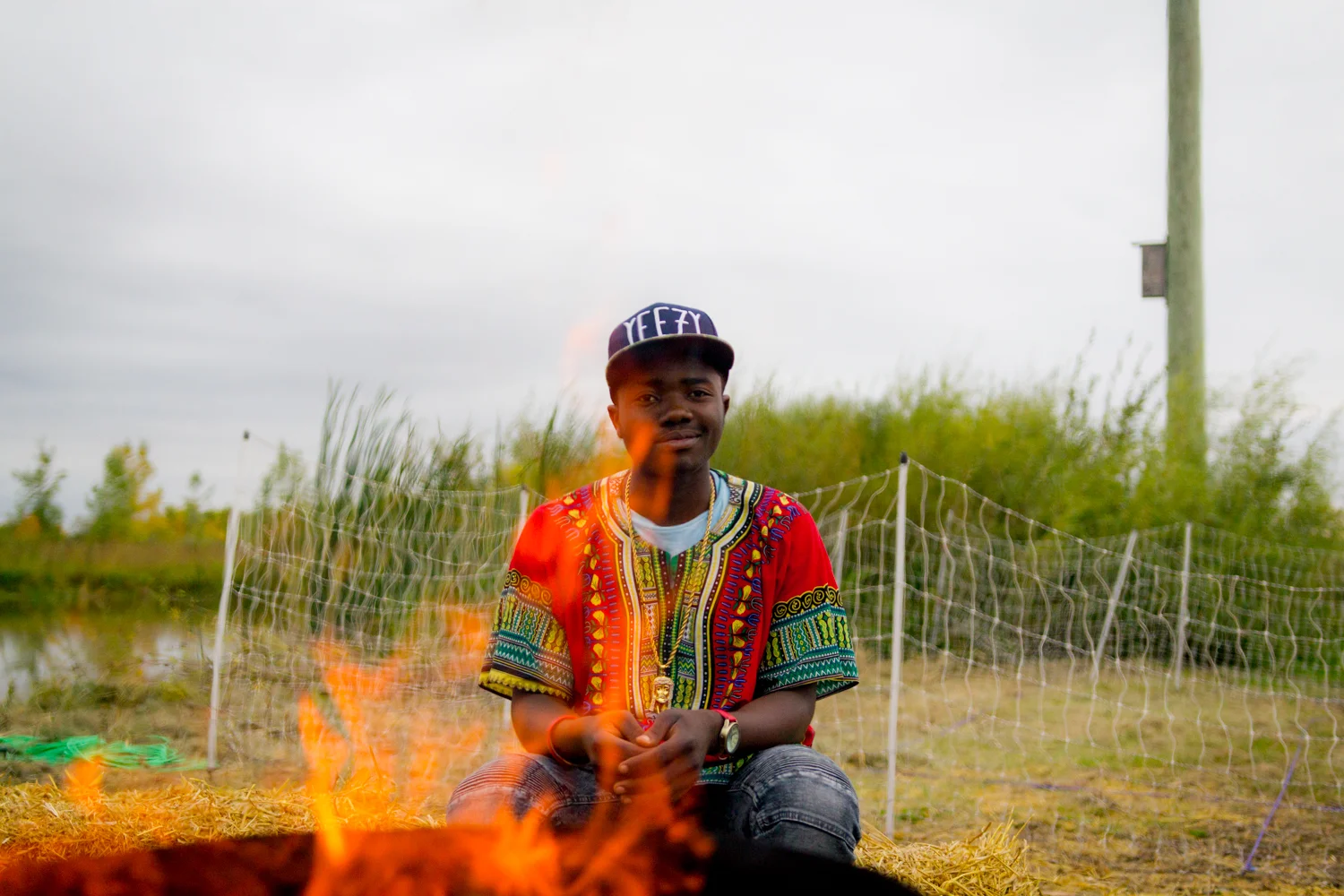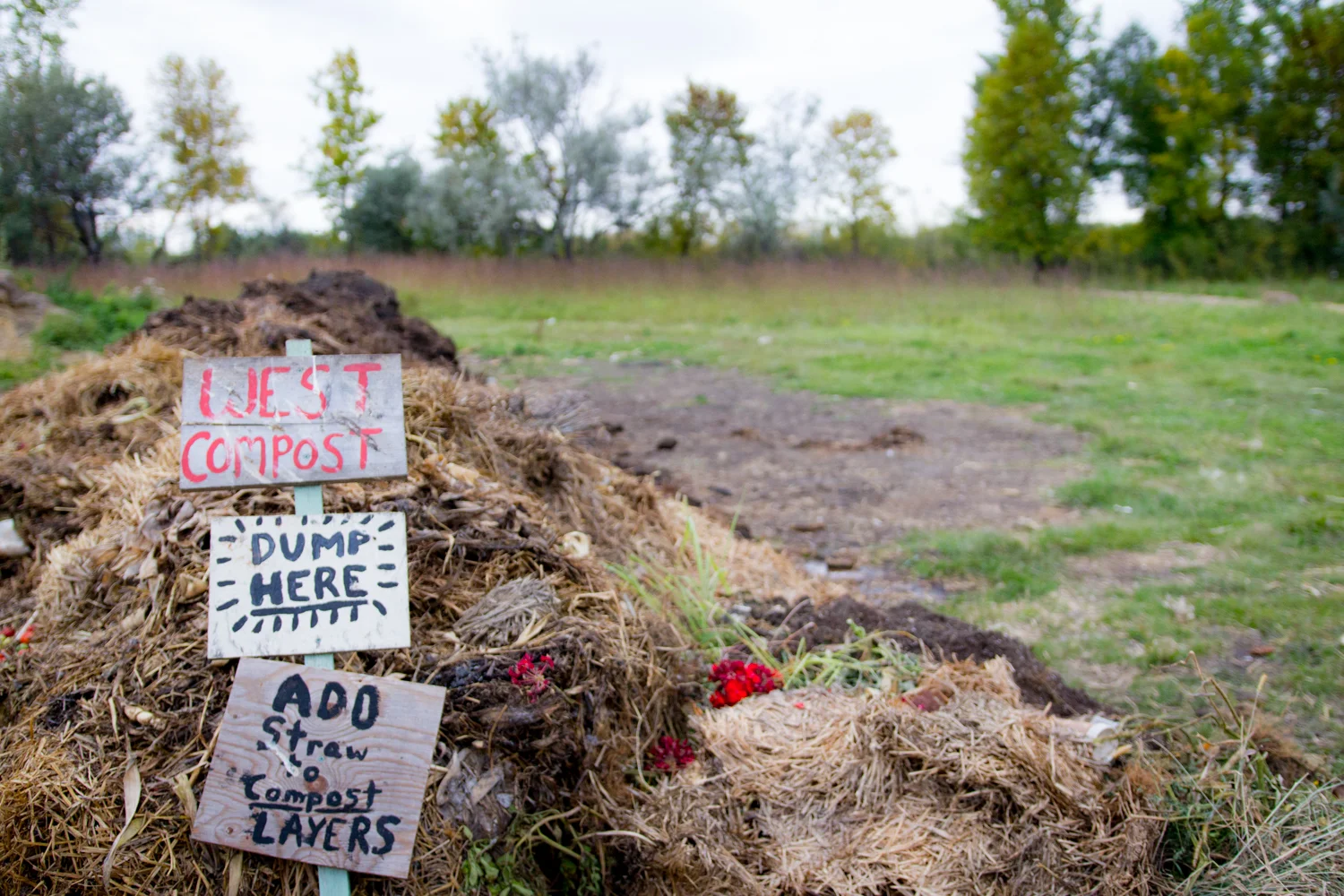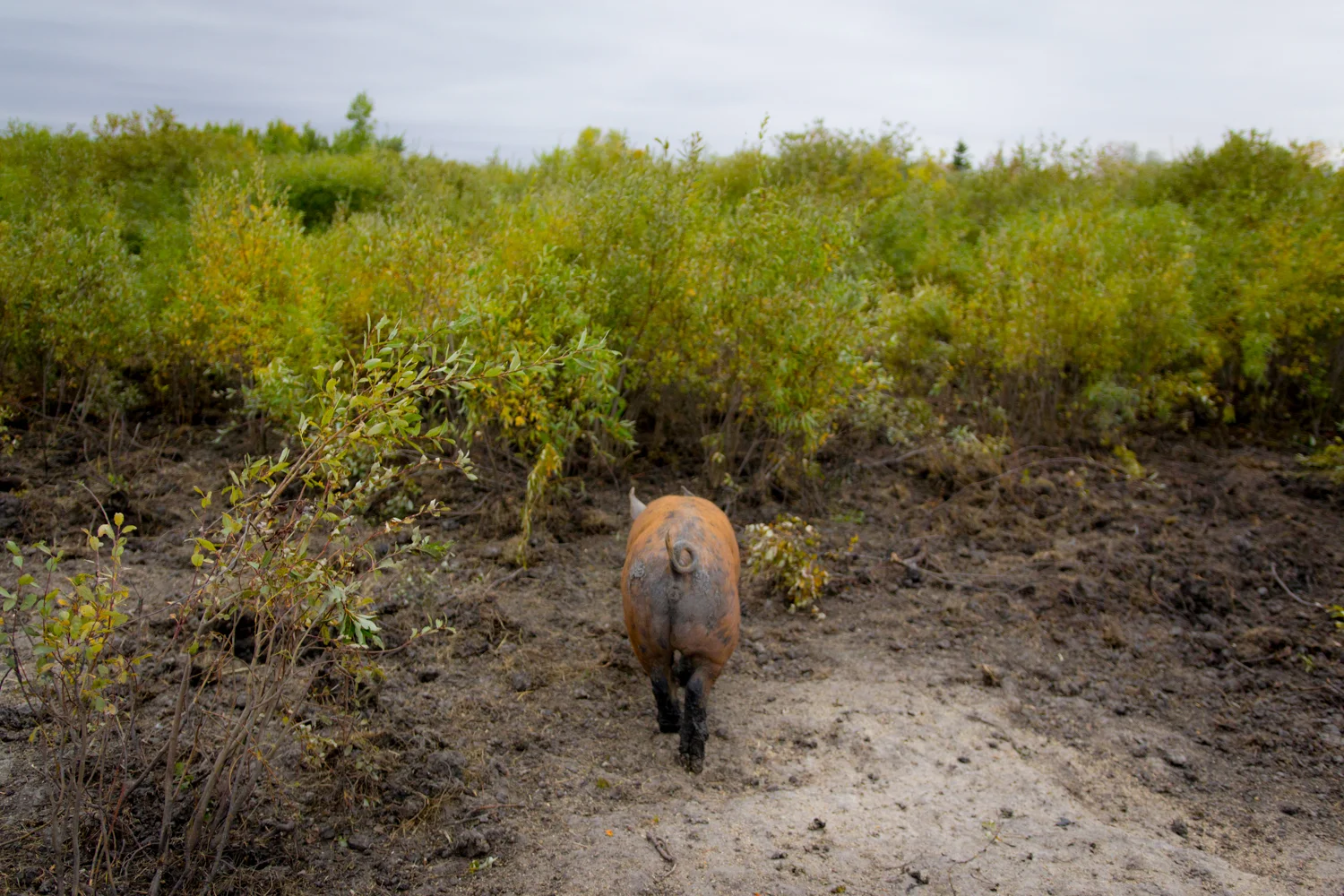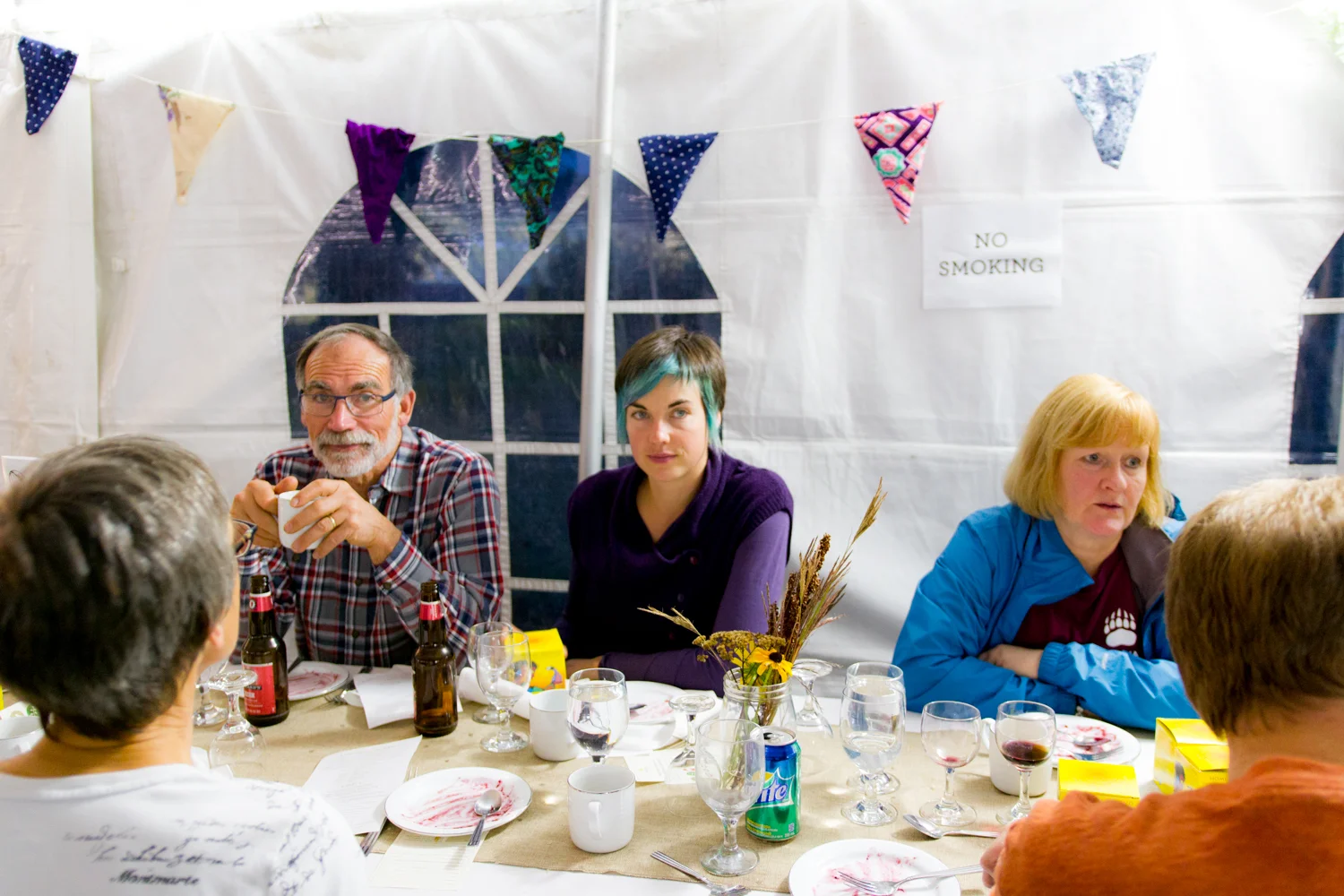FortWhyte Farms Harvest Supper
It’s a sunny afternoon in mid-September and I’m easing out of the crush of Kenaston rush-hour traffic, making my way to FortWhyte's annual Harvest Supper. The Harvest Supper is a fundraiser for FortWhyte Farms’ youth program, where high-school-aged youth come out to the farm to learn about food, Manitoba farming, raising animals, and cooking. All of these lessons are rooted in the philosophy of sustainability.
Danielle Mondor, who manages the farm, says, “One of the neat features of our program is that it’s hands-on learning that links to the sustainable development curriculum for high school students. While youth may not be able to sit in a classroom setting all day long, they can come out here and gain course credits in science, math, or phys ed for the work they do. We involve them in every aspect of the farm, whether it’s working in the medicine garden, weeding the fields, feeding the pigs, cooking a meal for their peers, or cleaning out the chicken coop.”
The Harvest Supper is a celebration of that work.
FULL: What foods do you grow and raise here and how do they make their way into the Supper?
Danielle Mondor: We grow about two acres of food here. We have pastured pigs, and we raise hens, bees, and meat rabbits. Tonight we’re eating our own pork, and we’re eating a lot of the vegetables from our garden. Any of the grains or dairy are sourced in Manitoba by Diversity Food Services. They’re one of the biggest institutions in North America that source locally. It’s hard in our prairies to do that, so we’re thrilled to have an opportunity to work with them again. I’m impressed tonight, because there’s lots of gluten free and vegetarian and vegan options as well.
FULL: During the rest of the year, where does the food from the farm go?
DM: We can’t supply the café or the downtown facility with a lot of food, because we are only a small working farm. There are a lot of skills needed to successfully run a market garden, and running a farm with youth that have never worked outside or worked in agriculture before means it’s not feasible for us yet. However, all of the carrots, most of the potatoes, root vegetables, greens, herbs and fruit was harvested by the youth. And then we have connections with other local farmers who fill in the gaps for us. Year round we’re able to supply our own freezers, farmers’ markets, and CSAs with a huge box of vegetables every single week. Year round we have a huge freezer that’s full of food. We use it in classroom sessions with our youth, where they can learn how to make salsa, jam with reduced sugar, or process rabbits.
The nature of the program allows youth the opportunity to nourish the soil that their working with, and then nourish their bodies using what they’re making with their own two hands.
FULL: How long has FortWhyte Farms been running this program and how has it evolved?
DM: The youth program has been running since 2003. It has grown from a small beekeeping and bison-meat cutting operation at FortWhyte Alive to now having pastured pigs, rabbits, hens. We used to raise nearly a thousand broilers, and we hope to do that again in the future. We’ve built out this huge medicine garden, a massive compost, a passive solar greenhouse where we grow all of our transplants and donate transplants to community organizations. We’re growing giant pumpkins this year. We have a commercial kitchen on site too. We also do public workshops now in food preservation, canning, bread making, soap and candle making. We allow people to come here and participate in their food with medicine garden workshops. We have a gleaning day. A lot of kids come through the farm camp that we run. It’s really grown through the last thirteen years. Even in my five years here, the place has exploded.
FULL: What would you say accounts for that explosion?
DM: The interest in food has grown in Winnipeg. There’s also an interest in alternative education. We’re seeing more youth that don’t thrive in a classroom setting, and teachers are looking for other ways to engage their youth. It’s not only about getting their course credits, but participating in a healthy lifestyle and becoming engaged citizens and community leaders. This is one avenue where they can gain more confidence, build on those skills, develop a resume, and hopefully they leave feeling more empowered than they did when they came here.
I don’t have a lot of youth working experience, but one of the remarkable things I’ve noticed about the program is how youth who will come here not wanting to engage with others, not wanting to open up, not able to really interact with the world, but then be able to interact with a chicken, or steward a plant, or take care of a piece of land. That’s a kind of awakening that allows people the confidence to grow and develop good habits and likes and dislikes around food. They have an opportunity to participate in a community.
FULL: How can people who weren’t able to attend the Harvest Supper support the youth education program?
DM: We have a donation button on our website. We love donations. If you can’t financially donate, you can volunteer here. There are two streams for volunteers, one where you can work in our gardens and with our animals, and one where you can work with youth. You can also connect to FortWhyte by coming to our market, buying a share in our CSA, attending public workshops. All of the money goes back into our programs 100%. FortWhyte Farms is the social enterprise of FortWhyte Alive, so we really rely on the public’s support to keep this program going.


















